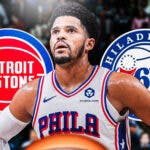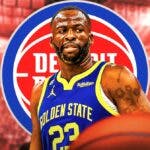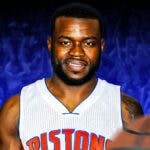I, for one, am eternally here for any and all Rasheed Wallace stories. The latest on-brand ‘Sheed anecdote comes to us courtesy of his former Detroit Pistons head coach Larry Brown.
Speaking with Shammond Williams on “The Carolina Conversation” podcast, Brown, who coached the Pistons to the 2003-04 NBA championship revealed how Wallace was able to get into the head and under the skin of legendary — and legendarily imperturbable — North Carolina Tar Heels head coach Dean Smith.
“Rasheed came down from the break (in practice) and shot a three from the corner,” Brown recalled. “And you know how Coach [Smith] could get, he never cursed, but some of the things he said to us — you thought he cursed. [Coach Smith] said in his own way, ‘Yeah, we don't shoot those shots at North Carolina, our big guys especially.
“Rasheed said to coach, ‘I can make that shot.' And coach said, ‘You think you can make it?! You make ten in a row from the corner, and I'll let you shoot.' So he shot the first one left-handed, and he's a righty, and he made it, and coach got all upset and went on.”
This story perfectly encapsulates Wallace's unique blend of antics and basketball intelligence that defined his career. Wallace's vision for his game is simply ahead of his time, but Smith wasn't willing to view him as a three-point threat.
Without the green-light from his Hall of Fame head coach, the 6'10 Wallace attempted just four threes in two seasons at UNC (making one). He shot 33.6% on 3,228 three-point attempts over 16 seasons in the NBA.
“He could shoot the hell out of the ball,” Brown added. “Plus, he had a great low post game, and was an underrated passer, and he could defend anybody.”
It's unreal just how many people Larry Brown has been connected with through the sport of basketball. He has stories about everyone. He shared a few with Shammond Williams. These two on Rasheed Wallace are fantastic.
A new Carolina Conversation drops on @TheFieldOf68 at 10am ET. pic.twitter.com/FeWtMhFrqH
— Rob Dauster (@RobDauster) November 9, 2020
Wallace went no. 4 in the 1995 draft to the Washington Bullets, then was dealt to the Portland Trail Blazers before his second season. He turned into one of the best big men in the game in Portland, averaging 16.8 points and 7.0 rebounds per game, earning two All-Star nods.
Rasheed Wallace made two more All-Star appearances with the Pistons thanks to his blend of outside shooting, defensive IQ, and skilled passing from the post — qualities that would have enabled him to thrive in the modern NBA.




